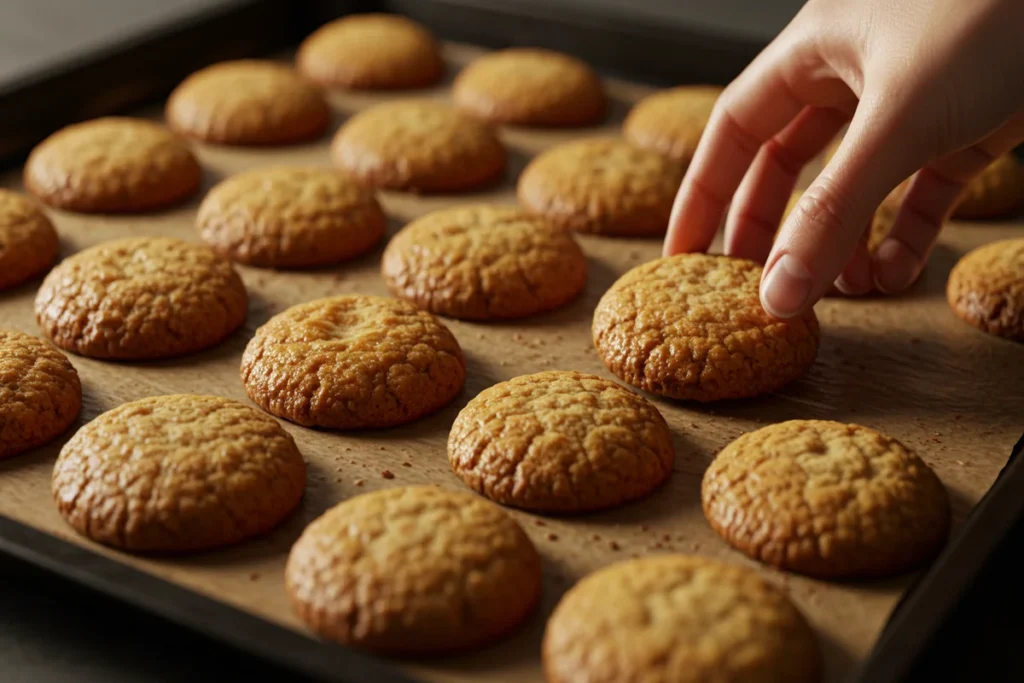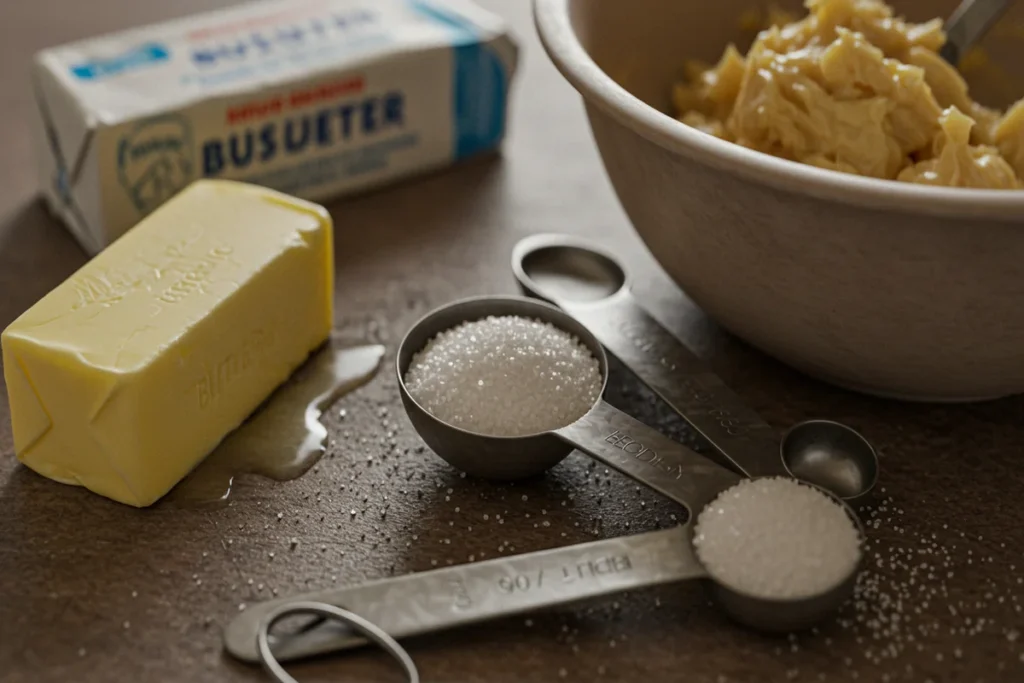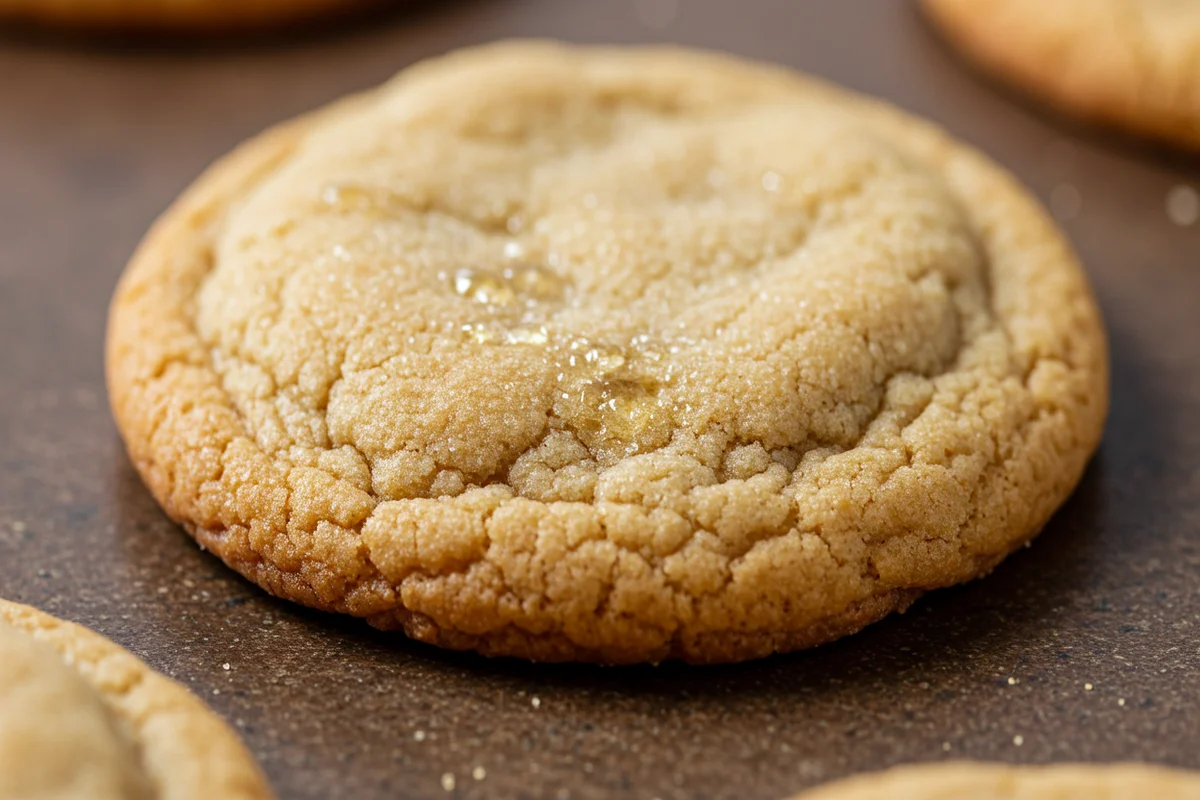Explore why do my cookies look greasy! This article uncovers the common causes and solutions for perfect cookies. If you’ve ever wondered “why do my cookies look greasy?”, you’re not alone. Many bakers face this issue, and understanding the root of the problem is key to achieving baking success.
Understanding Why Do My Cookies Look Greasy
The question of why do my cookies look greasy is a common concern for bakers. Greasy cookies are not very appealing. Therefore, this article explores the reasons behind why do my cookies look greasy. We’ll look at the common causes and how to fix them. You will learn how to avoid this problem so your cookies are perfect.

Common Causes of Greasy Looking Cookies
There are several common reasons why do my cookies look greasy. These often involve the ingredients used or the method. The type of fat used, the amount of sweetener, and the oven temperature are some key factors contributing to why do my cookies look greasy. Specifically, understanding these causes is key to fixing the issue and preventing “why do my cookies look greasy” moments in the future.

The Role of Fat in Greasy Cookies
The type of fat and the amount are key factors when considering why do my cookies look greasy. Too much butter, shortening, or oil can cause the cookies to look oily. Therefore, it’s important to use the correct ratios. Be sure to be accurate with your measurements when baking, since a common cause of why do my cookies look greasy is improper fat usage.
Sugar and Its Influence on Cookie Greasiness
Sugar can also influence cookie greasiness. Too much sugar can create a very moist environment. Consequently, this can cause the fats to separate. Therefore, it is important to keep the sugar at the correct levels. The amount of sweetener is often the culprit in “why do my cookies look greasy” scenarios.
The Effect of Oven Temperature on Greasy Cookies
The oven temperature has a big effect on why do my cookies look greasy. An oven that is too low can cause the fats to melt too slowly. Therefore, the fats might not properly mix into the dough, often leading to the question of “why do my cookies look greasy?” This results in oily or greasy spots on your cookies.
How to Prevent Cookies from Looking Greasy
Now that you know why, let’s look at how to prevent cookies from looking greasy. These tips will help you get perfect results. Let’s learn how to make cookies that are perfect, avoiding the “why do my cookies look greasy” problem entirely.
Measuring Your Items Accurately
Accurate measuring is a key step in baking. Use measuring cups and spoons. Chiefly, use a kitchen scale for more precise results. Therefore, be sure your measurements are exact. Accurate measurements greatly improve the final product and prevent issues such as why do my cookies look greasy.
Using the Right Type of Fat
Use the right type of fat for your recipe. If the recipe uses butter, do not use shortening or oil unless specified. Specifically, choose the type of fat in the recipe. Using the appropriate fat helps prevent greasy cookies, addressing the question of “why do my cookies look greasy.”
Adjusting the Amount of Sugar
You might need to adjust the amount of sugar. If the recipe is often oily, use a little less sweetener. However, ensure the changes don’t affect the taste. You can try some small tests to get your recipe perfect. Avoiding too much sugar is key to ensuring you avoid asking “why do my cookies look greasy?”
Ensuring Your Oven is at the Correct Temperature
Make sure your oven is at the right temperature. Indeed, use an oven thermometer to be sure. An oven that is too low is a common cause of oily cookies, making you wonder “why do my cookies look greasy.” Always preheat your oven correctly to avoid this issue.
Greasy Cookies and Specific Recipes
Some recipes are more prone to greasy cookies than others. Let’s explore a few specific cases. Therefore, this will help you better understand the cause of “why do my cookies look greasy.” Knowing what is more prone to this helps you avoid it.
Greasy Chocolate Chip Cookies
Chocolate chip cookies can sometimes become greasy. This is often due to too much butter or sugar. Furthermore, it can also come from not chilling the dough. These are key points to consider for great results, to avoid asking “why do my cookies look greasy?”
Greasy Peanut Butter Cookies
Peanut butter cookies can be prone to being oily. This is often from the oils in the peanut butter. Therefore, choose a peanut butter with less oil. This is a key step to help you avoid the question of “why do my cookies look greasy?”
Greasy Sugar Cookies
Sugar cookies can also be oily if the oven is not hot enough. Additionally, they can also be greasy due to too much butter. It’s important to get the balance right. Always be sure to measure accurately and have your oven at the right temperature to avoid “why do my cookies look greasy” scenarios.
Greasy Brown Butter Cookies
Brown butter cookies can be tricky. The butter has already been melted which means they will have a higher fat content. Consequently, it is important to carefully measure all the items. This type of recipe may need some adjustments to prevent the issue of “why do my cookies look greasy.”
Common Baking Mistakes That Cause Greasy Cookies
Several common baking mistakes cause greasy cookies. Specifically, avoiding these will help you. Let’s explore what those errors are, helping you avoid asking yourself ‘why do my cookies look greasy?’ This will make your next batch of cookies perfect.
Overmixing the Dough
Overmixing the dough can create oily spots. It can cause the fats to separate. Therefore, mix until just combined. This will ensure you do not overmix, preventing issues such as “why do my cookies look greasy.” Always be sure to mix minimally.
Using the Wrong Items
Using the wrong items can cause problems. For example, using margarine instead of butter or a sweetener that melts in a different way. This is why it is important to follow the recipe accurately. Always ensure you use the correct items to avoid the frustration of “why do my cookies look greasy?”
Not Chilling the Dough
Not chilling the dough is another common mistake. Chilling the dough is very important for firming up the fats. Additionally, it helps the cookies hold their shape. This is important if you want them to not spread too much, and also important to prevent that “why do my cookies look greasy” problem.
Incorrect Baking Time
An incorrect baking time can cause issues. Particularly, not baking long enough can cause greasy cookies. Ensure that you bake your items fully. Always follow the instructions carefully, because underbaked cookies are often a source of “why do my cookies look greasy” issues.
How to Fix Greasy Cookies
Sometimes, despite your best efforts, cookies might still be greasy. Here’s what to do to fix the issue. These steps can help fix a batch of poorly baked cookies, when you’re asking, “why do my cookies look greasy?”
Blotting Greasy Cookies
Blotting greasy cookies can remove excess oil. Use a paper towel to gently pat the cookies. This will help soak up excess grease. This is a very simple way to remove oil when you’re facing the “why do my cookies look greasy” dilemma.
Placing Cookies on a Wire Rack
Place the cookies on a wire rack. This allows air to circulate. Therefore, it helps to cool the cookies quickly and stop the oil from pooling. This is a good method for drying them more quickly, and helping fix “why do my cookies look greasy”.
Slightly Baking Again
You can slightly bake greasy cookies again. However, be very careful to not burn them. This may help some cookies that are still very oily. Do this as a last resort to try and fix your batch and mitigate the problem that is “why do my cookies look greasy.”
Adjusting Recipe for Next Batch
If your cookies are very oily, adjust the recipe. Use slightly less butter or sugar next time. Therefore, make notes on what you have changed. This way, your next batch is even better. This is the most valuable step for long term fixes to make sure you never need to ask “why do my cookies look greasy” again.
Cookie Greasiness and Different Types of Fat
Different types of fat can cause different results. Let’s explore how different fats impact cookie greasiness. This will help you make better choices for your baking. Specifically, consider the type of fat used.
Using Butter in Cookies
Butter is a very common fat in cookies. It provides great flavor. However, too much butter can result in greasy cookies. Be sure to use accurate measurements. Butter, if used right, will make a great cookie.
Using Shortening in Cookies
Shortening is another common fat. It creates a very tender cookie. However, shortening can create oily cookies if not used correctly. It is important to carefully measure this. Shortening can cause the same issue if used incorrectly.
Using Oil in Cookies
Oil is sometimes used in cookies. Specifically, it can make cookies moist. But, too much oil can easily make the cookies greasy. Be sure to follow recipes carefully that use oil. Do not add more oil than is suggested.
Choosing Fats Wisely
Choose fats wisely to avoid greasy cookies. Therefore, be sure to use the amount suggested. It’s best to follow the recipe precisely. Using the correct fat will prevent unwanted results.
Frequently Asked Questions About Greasy Cookies
Here are some commonly asked questions about greasy cookies. These answers will further clarify the points. Additionally, they will help you avoid this issue.
How to make cookies less greasy?
To make cookies less greasy, use accurate measurements. Also, ensure your oven is at the correct temperature. Furthermore, use the specified fat in your recipe. Correctly following all the steps will help greatly.
Why is my cookie greasy after baking?
Your cookie may be greasy after baking because of too much fat. Also, too much sugar, or if the oven temperature was too low. Specifically, check all these areas for issues. You can usually find the source of the issue by going over these points.
Why are my brown butter cookies so greasy?
Brown butter cookies can be greasy due to the high fat content of the melted butter. Therefore, chilling the dough is important. Additionally, be careful with the amount of sugar. This is a difficult type of cookie, and can require care.
How to remove excess oil from cookies?
To remove excess oil from cookies, use a paper towel to blot them. You can also place them on a wire rack to cool quickly. These are a couple of good techniques to remove oil.
Conclusion
In conclusion, why do my cookies look greasy often comes down to items and temperature. By using the right items, correct measurements, and baking at the proper temperature, you can make perfect, non-greasy cookies. Therefore, focus on the steps of baking and avoid these common issues. Baking, therefore, can always be improved with a focus on details.

